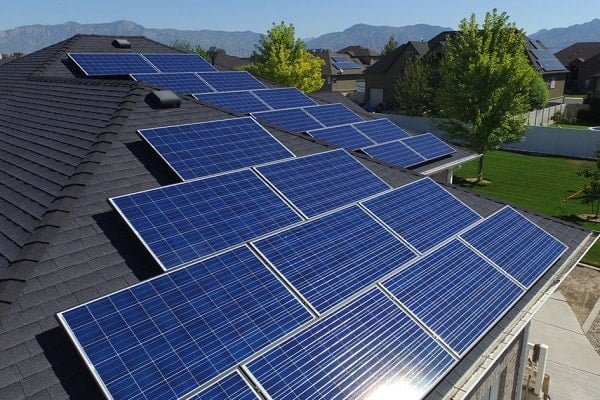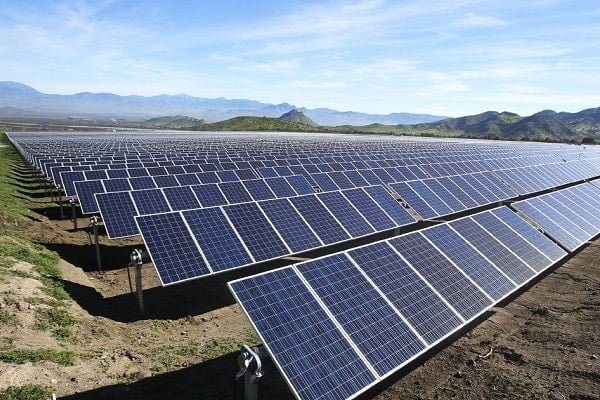Frequently Asked Questions - Homeowners
Q: Why is it best for a homeowner to utilize solar energy?
A: There are many benefits in utilizing solar energy especially in Malaysia. Malaysia has an efficient FiT scheme (also known as Feed-in-Tariff) that is advantageous for homeowners because of the long-term financial payback it gives while it gives you the opportunity of absorbing clean energy to provide electricity, further avoiding the rising cost of energy.
Q: What should I know about the grid-connected feed-in tariff?
A: Grid-connected RE systems are usually located in the urban areas. These directly supply solar electricity for households via an inverter. Should the RE systems provide more than enough energy, the excess electricity goes to the electricity grid. For that, homeowners will receive payment that is equivalent to the generated electricity amount. This is how the Feed-in Tariff works.
Q: Are the rates guaranteed?
A: Yes. A premium FiT rate is guaranteed for every kilowatt-hour generated by the system. This continues for the next 21 years.
Q: Does the Malaysia Feed-in Tariff fund for the premiums paid by the Tenaga Nasional Berhad?
A: The Malaysian government nor the Tenaga Nasional Berhad fund for the Feed-in Tariff. The funds are sourced from the RE funds under the Sustainable Energy Development Authority (SEDA) Malaysia. This was mandated under the Renewable Energy Act 2011.
Q: Are there solar panel grants given by the Malaysian government for home installation costs?
A: There are grants provided for home installation costs of Solar PV technologies for some countries; however, these grants are not being offered to homeowners in Malaysia. But it is important to note that, more often than not, banks are disposed to offer these loans at low interest rates for homeowners who are interested in installing Solar PVs because the Feed-in Tariff guarantees profit for long-term periods.
Q: Does installing technologies such as solar PV give out incentives?
A: Yes. The Malaysian government provides incentives through the FiT rate to encourage more individuals to utilize renewable energy. Furthermore, the Malaysian government provides fiscal incentives included in the yearly budget to support renewable energy utilization.
Q: How can a homeowner apply for Feed-in Tariff?
A: Feed-in Tariff applications can be done manually or online. Should a homeowner decide to apply manually, there are application forms available from the SEDA Malaysia’s office. Online submissions can be done via the SEDA Malaysia official website.
Q: How can a homeowner secure an approved application when it comes to the sale of renewable energy resources at FiT rates?
A: Applying for Feed-in Approval is easy. It can be done personally by the homeowner, or the homeowner can obtain the services of authorized personnel for the processing of applications.
Q: How will SEDA Malaysia be able to facilitate the activation of my feed-in-tariff if the start date of the FiT arrangement is reliant on the distribution licensee’s accessibility?
A: The distribution licensee is required to follow the rules and guidelines of the 2011 Renewable Energy Act, which mandates for them to procure the renewable energy first and to facilitate the necessary transaction. Regardless of the target date set for tariff commencement, this will have to take precedence. Any failure on the part of the licensee to abide by rules may result in sanctions.
Q: Does the FiT system earn the support of the Tenaga Nasional Berhad?
A: Yes, the FiT scheme has earned the support and approval of the Tenaga Nasional Berhad, especially with the government making concrete efforts at prioritizing renewable energy sources. The 2011 Renewable Energy Act obliges distribution licensees to procure eco-friendly energy sources as well as to make these sources a bigger priority compared to electricity-dependent energy sources.
Q: What action should I take in the event that the Tenaga Nasional Berhad or a distribution licensee declines acquisition of the renewable energy I have produced?
A: It should be clear that both the Tenaga Nasional Berhad and distribution licensees are obligated by law to procure or purchase independently-generated renewable energy. In addition, the purchase of renewable energy should be prioritized over energy types produced through non-renewable means. Any lapse or failure on the part of either the TNB or distribution licensees to abide by this rule can lead to serious sanctions.
Q: Are taxes imposed on a feed-in-tariff income?
A: Yes, there are taxes imposed on FIT-generated income. Exemptions, if any, are dependent on government policies.
Q: Can we expect a reduction on the FiT rate (under the terms of the renewable energy arrangement) and the FiA in the coming years?
A: No. This is due to the fact that the FiT rate is secured for the succeeding 21 years, until the provision for grid parity. This is done to assure the safety of investments as well as to secure grid parity more efficiently without an increase in costs.
Q: What will happen in the event of an expiration of the FiT system’s Renewable Energy Power Purchase agreement?
A: As the holder of a FiT approval, you are allowed for reapplication in the event of agreement expiration. In cases where grid parity is involved, however, holders of a FiT approval are required to enter into a negotiation with the distribution licensees.
Q: Is it permissible for renewable energy to be utilized internally?
A: Internal utilization is allowed, but only those installations with low voltages are permitted by SEDA Malaysia. Specifically, it is allowed at the following rates: 425kW, >10kW, 400V, 10kW, 230V. Accurate prerequisites will be outlined before the FiT system is initiated
Q: Is it permitted or possible for FiT rates to exceed the provisions of an existing contract on retail electricity tariff before REPPA expiration is reached?
A: Yes. The Renewable Energy Act of 2011 states that in cases where grid parity is attained, the FiA holder — in this case, you — is the one liable for the payment of any displaced cost.
Q: Should I decide to sell my house or transfer to a new location, will the RE power purchase agreement and FiA be transferred to the new owner?
A: Yes. The RE power purchase agreement and FiA is transferred to the new owner with a given consent from the SEDA Malaysia.
Are you a company with plans of investing in Solar PV but wants to get more ideas about the processes and how the application works? Read about the Frequently Asked Questions – Corporate/Companies to help you.







